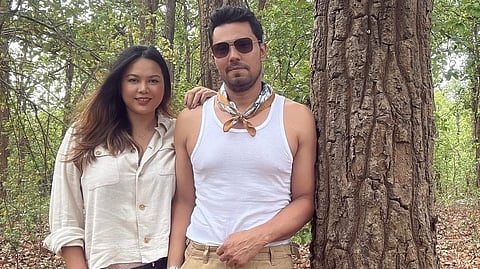
- LIFESTYLE
- FASHION
- FOOD
- ENTERTAINMENT
- EVENTS
- CULTURE
- VIDEOS
- WEB STORIES
- GALLERIES
- GADGETS
- CAR & BIKE
- SOCIETY
- TRAVEL
- NORTH EAST
- INDULGE CONNECT

To mark World Environment Day, actor and environmental advocate Randeep Hooda, along with his wife Lin Laishram, took a powerful step towards forest conservation by planting over 500 native trees near Kanha National Park in Madhya Pradesh. The initiative, carried out with the help of local villagers, serves not just as a ceremonial gesture but as part of the star couple’s ongoing commitment to wildlife conservation, reforestation, and sustainable living.
Nestled in central India, Kanha is renowned for its rich biodiversity, including tigers, leopards, swamp deer, blackbucks, and a diverse range of flora. As an experienced wildlife photographer and outspoken conservationist, Randeep has long expressed his deep spiritual connection with nature — a bond that seems to have only deepened with time.
“World Environment Day is not just a date; it’s a wake-up call,” said Randeep. “Forests are the lungs of our planet. Without them, we risk losing the biodiversity that sustains life as we know it.” The couple’s decision to celebrate the day by planting trees was rooted in purpose. “Planting a tree may seem small, but it holds immense power. It provides food, oxygen, shelter — everything nature selflessly offers us,” he said. “Lin and I are humbled to contribute to this extraordinary ecosystem. Forests and wildlife are not separate — they are interdependent, and both must thrive.”
Lin, an actress and entrepreneur, has also been vocal about eco-conscious living and sustainability. Together, their presence on the ground sends a strong message — that climate action and biodiversity preservation are causes that need constant and active participation. The couple’s plantation drive comes at a time when environmental concerns are more urgent than ever.
From rising deforestation to climate instability, India’s green cover faces multiple threats. Initiatives like these, especially when led by influential public figures, offer not only practical help but also powerful awareness-building opportunities. As Randeep rightly pointed out, “Nature doesn’t need us we need nature.” The message is clear: conservation isn’t a trend. It’s a responsibility.